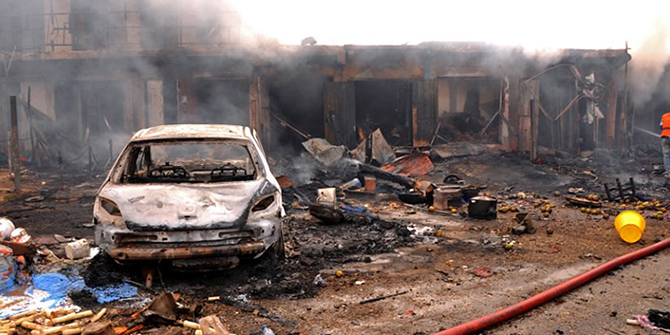Mugambi Laibuta is a Master of Laws student at LSE and his dissertation is Multi-national Corporations in Human Rights Protection and the Role of the African Union. Here he puts forward the viewpoint that African leaders need to find the right balance between accepting foreign investment and protecting the fundamental rights of its citizens.
Since colonial rule, multi-national corporations have had a varied impact on Africa’s development. These corporations have provided vital foreign direct investment, in effect, boosting economic and social gains within African states.
Multi-nationals have been involved in infrastructure development, agricultural schemes, the energy and financial sectors and in the extractive industries.
Despite the benefits gained over the last century or so, multi-national corporations have also been involved in some of the continent’s worst atrocities including apartheid, civil wars, environmental degradation, financial crimes and offering support to repressive regimes.
The Niger Delta situation, conflict diamonds in Sierra Leone, Liberia and Angola, mining in the Democratic Republic of Congo, hedge funds land acquisition to boost profits in the food and bio-fuels sector and child labour in agricultural fields all over the continent provide examples of the negative impact of international business in Africa.
Balancing the scale between foreign investment and protection of fundamental rights and freedoms has been one of Africa’s Achilles heels.
Weak and/or corrupt political and administrative structures coupled with inadequate legal frameworks continually fan corporate impunity in terms of human rights violations ranging from child labour to illegal appropriation of private property.
The political class in Africa is often compromised through bribery and financial support for political activities by multi-national corporations; in effect some multi-nationals call the shots in such regimes.
Investment and corporate regulation in Africa is weak. State legislation and treaties provide no overt requirements for responsibility upon corporations to protect, respect and enhance human rights in their areas of operation.
Apart from the ‘Harmonization of Guiding Principle and Policies in the Mining Sector’ by the Economic Community of West African States in 2009, regional bodies have made no concrete efforts to deal with the negative impact of corporate activity within the continent.
However, with the advent of the Kimberly Process as certification for rough diamonds, diamond trade within the continent has come under strict scrutiny and supervision.
With the United Nations Human Rights Council endorsing the Guiding Principles for Business and Human Rights, the general perception is that these will foster greater corporate accountability in the protection of human rights. While a positive step, the Guiding Principles represents a shaky soft-law approach to corporate regulation that, bearing in mind Africa’s situation, may take decades to implement.
The role of the African Union comes into sharp scrutiny. As it is clear that most African states have weak legal systems, through their mandate under the Constitutive Act of the African Union the various organs of the Union ought to take concrete steps towards a provision of legal responsibility of multi-national corporations operating in Africa while offering a judicial solution to deal with human rights violations.
As it is not clear how this may be achieved in the long run, initiating discussions to determine various possibilities may be a good start.







why is it that transnational corporations turn to exploit the African continent
this is a great article…..an eye opener for the scholars and africans at large not to be taken for a ride.
This is a great topic.
I’ve discussed almost a similar topic for my LLM with U.J (University of Johannesburg) but i focused on the right to development and HR obligations which should also include corporations. I’m working on the adequacy of the Ruggie framework to the context of Fragile African States. Check the 2014 OECD report.This work is not just a theoretical paper. I’m from DRC. I’ve experienced and know how corporations can impact negatively on individuals and communities. Good luck with your LLM and feel free to contact me for discussions.
The AU hasn’t done much to check human rights abuses by African governments against their own citizens.It is unlikely to come in effectively against the multi-national corporations. The AU is still weak and operates more as a club for African presidents, not a champion for the causes of the African people.